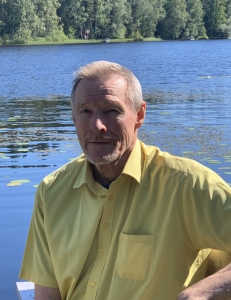
Prof. Yrjö Engeström
University of Helsinki, Finland
Title: CONCEPT FORMATION IN THE WILD: EXPANDING OUR PERSPECTIVE ON LEARNING
Bio:
Yrjö Engeström is Professor Emeritus of Education at University of Helsinki and Professor Emeritus of Communication at University of California, San Diego. He is Director of the Center for Research on Activity, Development and Learning (CRADLE) in Helsinki, and visiting profesor at Rhodes University, South Africa, and University West, Sweden. Engeström applies and develops cultural-historical activity theory and the theory of expansive learning in studies of transformations in education, work, and communities. He is known for the methodology of formative interventions and the Change Laboratory. His recent books include Learning by Expanding (2nd Edition, 2015), Studies in Expansive Learning (2016), and Expertise in Transition (2018), all published by Cambridge University Press. In the near future, Cambridge University Press will publish his new book Concept Formation in the Wild. Engeström received an honorary doctorate at University of Oslo in 2005 and at University of Ioannina, Greece in 2018. In 2021 he received a lifetime achievement award of the Cultural-Historical Research SIG of the American Educational Research Association.
Abstract:
There are ample studies and theories of concept formation. But they mainly focus on the individual acquisition of well-defined concepts handed down by teachers and researchers, operating in classrooms and experimental laboratories. Little is known about how new concepts are collectively created and used in workplaces, communities and social movements facing challenges that require profound transformation and re-conceptualization. It is time to redirect our focus on the collective, contested and historically evolving nature of concepts and to everyday practical activities as legitimate arenas of conceptualizing. Resources for creating a coherent framework for the study and practical facilitation of concept formation in the wild can be found in cultural-historical activity theory and the theory of expansive learning. I will examine concept formation across different productive activities, ranging from the building of large wooden fishing boats to the construction of an integrated pest management system among horticultural producers, and to the formation of the concept of Housing First 2.0 among Finnish practitioners working for the eradication of homelessness. The presentation yields a typology of functional concepts, consisting of prototype concepts, classification concepts, process concepts, systems concepts, and germ cell concepts. Each type of concepts has its own characteristic potentials and limitations. Concepts are seen as embedded in complex instrumentalities, social relationships and patterns of learning within the activity systems that generate and employ them.

